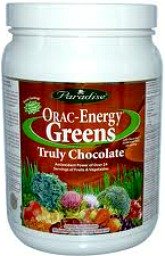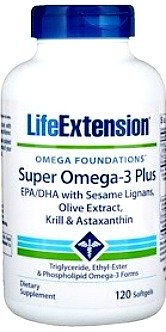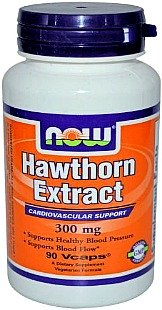Diagnosis of Heart Disease: First step toward recovery
Diagnosis of heart disease comes first. Without it, it is impossible to know what kind of cardiovascular related problems you might have.
Based on heart disease diagnosis, the doctor will choose appropriate medications or in some cases, suggest a surgery. On the other hand, by identifying the problem, it will be much easier to pick the right supplements, if you decide to try some.
To do that, you need to undergo the diagnosis process. Luckily for us, there are many safe ways to find the cause of the problem.
DIAGNOSIS OF HEART DISEASE - THE TESTS
Electrocardiogram also known as EKG or ECG is safe, painless, and least expensive test most commonly used for heart disease diagnosis. The doctors attach small electrode patches on to the skin which record electrical activity of the heart. The test last about 10 minutes.
It helps assess the heart rhythm, possible abnormalities such as enlarged heart as well as diagnose heart attack or poor blood flow to the heart.
Echocardiogram is a test which uses ultrasounds to visualize the heart and its structures. Most commonly used test is transthoracic echocardiogram. It transmits high frequency sound waves which create images and sounds of the beating heart muscle.
It is safe and very helpful tool in diagnosis of heart disease, especially when it comes to detecting structural abnormalities of the heart muscle tissue.
Stress test or treadmill stress test exposes cardiac muscle to controlled physical exertion which can be caused either by walking or jogging on a treadmill. It is used to evaluate ejection fraction, function of the heart valves and how well the cardiac muscle responds to increased workload.
Blood test is used to check and monitor values of cholesterol, triglycerides, cardiac enzymes, effects of certain medication as well as levels of vitamins and minerals in the blood. It is mostly used in people with history of heart disease.
Holter monitor (24 hour ECG) is a portable electrocardiogram which can be worn for 24 to 48 hours, during which it records electrical activity of the heart muscle. It is frequently used in diagnosis of heart disease.
Cardiologist will review recorded electrical activity, stored on the portable ECG. While wearing it, you are free to perform all of your normal activities, besides showering.
Chest X-ray produces images of the heart, lungs and chest bones. It can be used to evaluate the placement of possible pacemakers, chest tubes or defibrillators. Bad side of this test, is that it exposes your body to radiation. However, the dose is very small.
Heart MRI can be of great help to doctors, for evaluating anatomy and function of the beating heart muscle, lungs and blood vessels as well as in diagnosis of heart disease, in general. There is no X-ray exposure involved, while undergoing MRI.
However, since it uses large magnets and radio-frequency waves, it is not recommended for people with some kind of metallic or radio-frequency sensitive implants.
CT heart scan is a combination of multiple X-ray images and computer guided tomography which is used to visualize the heart anatomy, coronary circulation and major blood vessels with or without use of intravenous contrast such as iodine.
It is used in diagnosis of coronary artery disease and to evaluate the risk of possible heart attack, by detecting calcium deposits in the coronary arteries.
Heart or myocardial biopsy is procedure during which the doctor uses small device called bioptome, in order to obtain a small piece of heart tissue which is sent to laboratory for analysis.
When it comes to diagnosis of heart disease, it is used to diagnose inflammation of the heart muscle, cardiomyopathy and to detect possible abnormal protein deposits in the heart muscle, known as cardiac amyloidosis.
Pericardiocentesis(pericardial tap) is a procedure during which the doctor uses a needle and a catheter to remove the fluid from the sac, around the heart. It is used to ease the symptoms, such as shortness of breath, caused by accumulated fluid.
However, it can also be used to find the cause of fluid build-up such as infection or cancer. Accumulated fluid puts pressure on the heart muscle, which affects its pumping ability.
HOW AND WHEN DID I GET DIAGNOSED WITH HEART DISEASE
When I was faced with diagnosis of heart disease, the doctors found out I had enlarged heart, high blood pressure and arrhythmia. I was diagnosed by accident, while I was having mandatory medical examination, for the army, at the age of 17, when men in my country, were still obligated to serve mandatory military service which lasted at the time about 6 to 8 months.
Due to diagnosis of heart disease and my test results, I was released from my obligation.
Although, I was experiencing some of the symptoms earlier, I really didn't pay too much attention to them. If I didn't need to go through this mandatory medical examination, I would probably find out about my condition a lot later. Then, my heart would be in even worse condition than it was at the time.
The moral of the story is go and get your physical exam. It is better to be safe, then sorry.
WHICH TEST HAVE I HAD
While undergoing diagnosis of heart disease process, I had to do electrocardiogram or EKG, two stress tests on a treadmill, chest X-ray, holter monitor test and echocardiogram.
These tests confirmed that I have arrhythmia and high blood pressure, while ultrasound showed I have enlarged heart, all at the 17 years of age.
The test were easy to take. Holter monitor was a hassle because you have to walk around like a terminator with all these wires and monitor attached to you for entire day.
Diagnosis of heart disease process was very interesting, specifically, the ultrasound test. When the doctor "turns the sounds on" you can actually hear you heart beating. The sound can be described as something similar as shaking a bottle of water.
Treadmill stress test is very easy to take. Only aggravating circumstance is that you are walking on a treadmill with all these wires attached to you.
CONCLUSION
Although it was shocking to hear in how bad condition my heart was, it was the best thing that happened to me. As I reconciled with my condition, I decided to learn, work and try to improve my health.
I started learning about healthy diets, foods, herbs, supplements, exercises and anything that could help me restore my health back, like it was before the puberty.
The point is, don't be afraid to take the tests. Avoiding diagnosis of heart disease can only steal the precious time. If diagnosed on time, you can receive the right treatment and get well again or at very least limit the amount of damage and improve the quality of your life.
- Heart Healthy Diet: Simple Tips and Guidelines
- Learn everything you need to know about heart healthy diet and find the right one for you. Implement few simple tips for immediate benefits.
- Heart Healthy Foods: How to Get the Most from Them
- Heart healthy foods can improve cardiovascular system function. Foods good for the heart are bursting with vitamins, minerals and rejuvenating phytochemicals.
- Herbs for the Heart and Cardiovascular System
- You have heard for hawthorn and garlic but there are few other herbs for the heart which can help in treating heart disease, naturally.
- The Best Heart Health Supplements
- Besides fish oil, there are several heart health supplements which can be useful. This includes Coenzyme Q10, Salicin, vitamin D3 and few others.
- Heart Healthy Spices
- Although there are many heart healthy spices out there, each of them can help prevent and treat heart disease in its own way, thanks to different types of flavonoids in these heart spices.
- Stress and Heart Disease: How are They Connected
- Stress and heart disease are closely related. In order to decrease the risk of heart problems, we have to learn how to handle the stress and treat its consequences, if we are unable to avoid it.
- Cardio Exercises for the Heart and Cardiovascular System
- Cardio exercises are vital part of natural heart disease treatment. However, which kind of heart exercise you should preform, varies from person to person.
- Good vs Bad Cholesterol: How to Improve Cholesterol Values
- Good vs bad cholesterol conflict is somewhat misunderstood. There is no good or bad cholesterol but only high or unbalanced cholesterol.
- Good Fats vs Bad Fats: Nutritional Facts and Guidelines
- What is the real truth when it comes to good fats vs bad fats? How much dietary fats should you consume daily and what are the best food sources of healthy fats?
- High Blood Pressure Remedies
- High blood pressure remedies range from tips and lifestyle modification to herbs and supplements. However, the method that works for someone else, may not work for you.
- Normal Heart Rate: How is Regulated and Influential Factors
- Normal heart rate varies from person to person. Although, age affects resting heart rate, there are many other factors that can raise or decrease heart rate.
- How to Lose Fat: Overlooked Tips for Weight Loss
- How to lose fat is surely one of the most intriguing questions for so many people. However, the answer is very simple. Eat healthy foods, perform fat burning exercises and take care of your hormones.
- Hormones and Heart Disease Connection
- Don't neglect hormones and heart disease connection. If you want to treat or prevent heart disease you have to balance your hormones.
- Heart Disease and Immune System Connection
- Heart disease and immune system connection is often overlooked, while trying to improve cardiovascular system function. However, there are several things you can do to change this.
- Dental Health Heart Disease Connection: Facts and Tips
- Dental health heart disease connection is one of three overlooked factors, along with hormones and immune system. However, with smart and effective approach we can change this.
- Causes of Heart Disease
- There are many causes of heart disease and factors that can increase or decrease your risk for developing heart related problems. Check how to turn the tide in your favour.
- Symptoms of Heart Disease
- There are few main symptoms of heart disease. Find out which are they, how to recognize them as well as my personal experience with some of them.
- Diagnosis of Heart Disease
- Accurate diagnosis of heart disease is the first step toward recovery. You can't start with treatment before you know what kind of disease you have, obviously.
- Treatment for Heart Disease: Medications and Surgeries
- Standard treatment for heart disease consists of surgeries, medications and devices. Which one is right for you, depends on your condition.
- Heart Disease Blog
- This is a blog about natural remedies, personal stories, helpful herbs and supplements, workout program as well as other tips and facts which may help people faced with heart disease.
- Contact Me
- Ask questions and leave comments about this site here.
- About the Author of Heart Health Guide
- About the author of Heart-health-guide.com website.
- Heart Health Guide Sitemap
- This is sitemap of Heart Health Guide.com. If you want to get better overview of informations on this website, you can get it here.
Copyright © - Heart Health Guide - All Rights Reserved.



